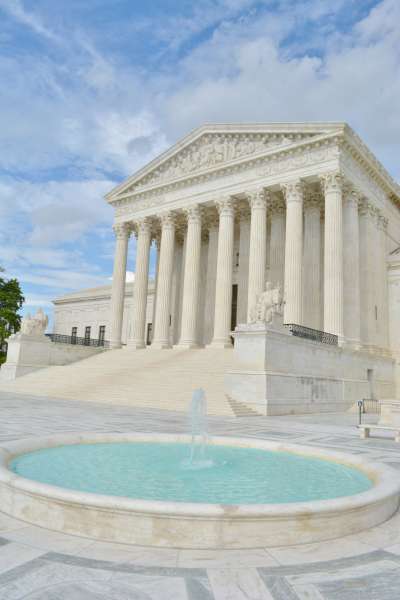Our Work
Private Citizens’ Role in Enforcing the Americans with Disabilities Act
HPOD's Professor Stein Previews Oral Arguments in Acheson Hotels, LLC v. Laufer before the U.S. Supreme Court

On October 4th, the U.S. Supreme Court will hear arguments in Acheson Hotels, LLC v. Laufer, a case that could limit the scope of individuals to sue businesses under the Americans with Disabilities Act.
Creative Commons License BY-SA 3.0, via Wikimedia
Next week, the U.S. Supreme Court will hear oral arguments in Acheson Hotels, LLC v. Laufer. The Court will consider whether a private citizen with disability is allowed to sue a business for violating the Americans with Disabilities Act (ADA) if she does not intend to use that business' services.
The case arises from when Deborah Laufer, a wheelchair user with multiple sclerosis, visited the website of the Coast Village Inn and Cottages in Maine to learn about the hotel's accessible rooms. As part of its ADA Title III regulations governing public accommodations, the U.S. Department of Justice's "Reservation Rule" requires that “places of lodging” “[i]dentify and describe accessible features in the hotels and guest rooms” on their online reservation portals “in enough detail to reasonably permit individuals with disabilities to assess independently whether a given hotel or guest room meets his or her accessibility needs.” When Ms. Laufer did not find sufficient information on the hotel's website to determine whether it had the accessibility features she would need to book a stay there, she sued the hotel.
This ADA lawsuit is one of many—over 600—that Ms. Laufer has filed. She considers herself a "tester," in other words, an individual whose primary aim was not necessarily to plan a trip to Maine, but who instead sought to address widespread failures by the hotel industry to comply with the Reservation Rule. Since the 1950s, "testers" have intentionally investigated and challenged forms of discrimination prohibited by a wide range of civil rights laws. Ms. Laufer and her supporters argue that Congress, when it passed the ADA in 1990, intended for testers to contribute to efforts to enforce the ADA in the same way they had done for decades with other statutes, while the Acheson Hotels group seeks the Court to instead require that all would-be ADA plaintiffs must actually intend to use a business' products or services before they are allowed to sue.
In an interview with Harvard Law Today, HPOD's Executive Director, Professor Michael Ashley Stein, weighed in on what's at stake. Ms. Laufer's supporters argue "that the ADA has been out there for 33 years, and the requirement is that you post the information relating to access on the website so that people can know," while the hotelier alleges that ADA plaintiffs like Laufer are part of "a money-making scheme" orchestrated by disabled citizens more interested in personal profit than systemic ADA compliance. He notes that despite "tremendous work" in advancing accessiblity since the ADA's passage, the sad reality is that:
"many employers and owners of places of public accommodation continue to flaut the law and assert all kinds of justifications that lack empirical bases [...]. Laufer would argue that after 33 years of the ADA, ‘how much clearer can you be, that this harm should be recognized?’"




